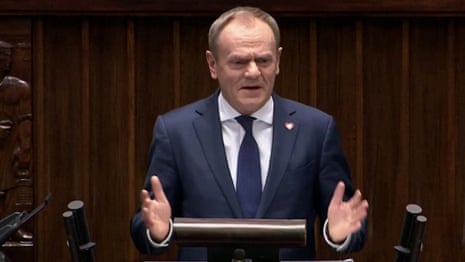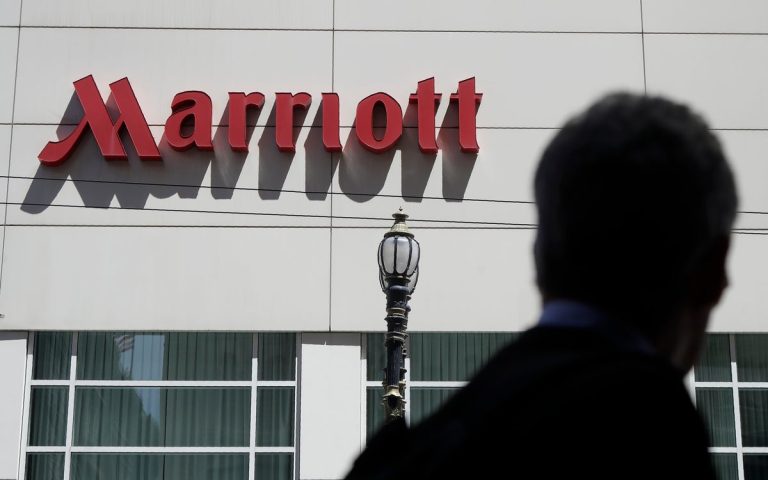Rightwing populists have many countries in their grip. Come to Poland: see how they can be pushed back | Anne McElvoy

My formative journalistic years were spent reporting on the final freeze of the cold war – days of hard times and soft currencies. When I return to those countries now, I test myself on how well I guessed what would follow in the three decades since. On Poland in particular, I would have been hard pressed to predict the giddy zigzag of power still featuring a generation who marched to topple communism, but whose protagonists feud bitterly about how to govern the country in the 21st century.
We talk a lot about places that have recently bought a one-way ticket towards authoritarian politics – Russia and Turkey for the full-fat versions, and Hungary’s democratic backsliding and stifling of independent institutions.
I had pondered about what happens when a country that embraced populist nationalism does a 180-degree turn and seeks to restore legal and democratic norms at top speed. What happens to laws passed under the previous masters of the house: the courts, state media, and business and other institutions stuffed by supporters of one side?
Poland, in the wake of an election last year that ended eight years of rule by the rightwing Law and Justice party in favour of a coalition headed by Donald Tusk’s Civil Platform, is in the eye of all these legal, ethical and practical storms. A documentary for BBC Radio 4 gave me the chance to chart this volte-face as the Tusk government takes an “iron broom” to sweep away a legacy of ultra-conservative rule.
But there’s also the story that is more nuanced and paradoxical here: the new government won an election, and forged an alliance in power that represents a lot of the country – but by no means all of it. As it sweeps away obstacles to its will, it will need to restore pluralism to avoid repeating aspects of the absolutism it replaces.
For a government led by Tusk, a bullish pro-European veteran of centrist politics who is not of the charm school persuasion (Brexiters were on the receiving end of his mordant style when he wished the Johnsonian variety a “special place in hell”), and with little common ground yet visible, that might well be the difference between a durable return to the centre of politics and yet another hairpin change of direction.
But as my producer and I travelled from the buzzy streets of Warsaw, via the Law and Justice stronghold of Wadowice – where a lady coming out of the basilica responded tartly to the question about Tusk’s government by saying it was “time he came back to God” – to Krakow, to speak to one woman caught up in the implementation of draconian abortion laws, it felt like veering giddily from one world to another. People claimed that they understood the destiny of their country while turning a deaf ear to others’ views.
It is not hard for western European liberals to identify with a figure like the deputy justice minister, Dariusz Mazur, who describes himself as “very tired” after years of tussle over control of courts, regulators and legal certification bodies. For him, it’s about cleaning out a judicial system stacked by Law and Justice – while avoiding the obvious pitfall of this government being seen as replacing one lot of favourites with another.
Donald Tusk speaks out against xenophobia in address to Polish parliament – video
There’s also a fraught dealing here with the idea of Europe. The Tusk government is EU friendly: he is a veteran of Brussels and adept at working it to appeal to Poland’s desire to be taken more seriously. A return to the European “family” and access to EU-derived funds was part of the appeal. The “iron broom”, however, might have met a hard stop as the European Central Bank raises objections to the Tusk government’s threat of a tribunal aimed to oust Poland’s central bank boss, on the grounds that it infringes the bank’s independence.
These attempts to eradicate eight years of a rightward “state capture”, with personal cronyism as well as ideology, guarantee a lengthy period of institutional muddle – it’s not even clear whether the president, Andrzej Duda (loyal to the old team), will allow the prime minister to swap out ambassadors he wants recalled.
skip past newsletter promotion
Sign up to This is Europe
The most pressing stories and debates for Europeans – from identity to economics to the environment
Privacy Notice: Newsletters may contain info about charities, online ads, and content funded by outside parties. For more information see our Privacy Policy. We use Google reCaptcha to protect our website and the Google Privacy Policy and Terms of Service apply.
after newsletter promotion
Tusk has been (by his uncompromising standards) conciliatory in insisting that this is a recalibration “not a retaliation”, though it’s hard to see that landing well with a large chunk of voters whose rightwing party won the largest share of the vote at the election. And the new government is held together by a coalition that itself contains many shades of opinion, infuriating the many young activists and voters who helped drive change by turning out en masse to oust Law and Justice – and now hanker for faster results on abortion and other social reforms.
Economically, a thriving Poland defies my expectations as the country I remember from the doldrums of the late 1980s, when a stint in the Dickensian conditions of Warsaw’s Rosa Luxemburg lightbulb factory would have been enough to put anyone off thinking that communism was an illuminating idea.
Now, it’s approached the EU average on household wealth, ahead of Spain and nudging Ireland, and the main cities feel like cosmopolitan havens, with a new sprinkling of Ukrainians who have fled west to start new lives – my friend’s dog-clipper is from Kharkiv, my manicurist fled from Odesa.
The new Poland still bears the echoes of grim events. But it might well turn out to be a test case for other states or movements in Europe and beyond that one day want to turn back from the “ultra” model. The moral of this story is that it’s necessary – but not easy.






